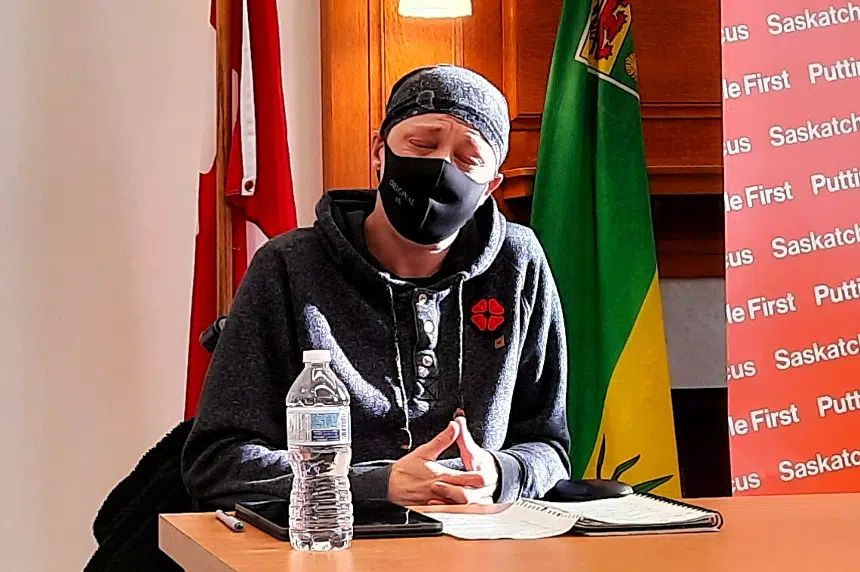Jessica Bailey was getting ready to get her life-saving kidney transplant this past summer.
She and her donor had gone through a year of testing and some unfortunate setbacks, but they had the green light.
Then the fourth wave of COVID-19 hit Saskatchewan hard and many procedures — including organ donations — were suspended.
“Utter devastation. I was really holding onto that,” Bailey said Monday when discussing the suspension. “It takes away the only thing we ever had, and that was hope …
“We have nothing else. We are dying individuals, and you took away the one light at the end of the tunnel.”
Bailey is in Stage 5 kidney failure and has about one per cent of her kidney function. She is now in palliative care, meaning doctors are giving her less than a year to live.
When the pandemic hit, Bailey said she thought it might make the transplant process take longer but never thought it would completely stop the life-saving surgeries.
Bailey blames the Saskatchewan Party government’s reaction to COVID-19. She feels it didn’t do enough to stop the fourth wave from getting out of control and overwhelming the health-care system.
“Having to wait and a government that’s not doing anything about the health-care crisis right now is very frustrating to me. It’s not fair at all,” she said.
Since the surgeries were put on hold, Bailey’s donor was disqualified because they developed kidney stones, so now Bailey has to find someone else. That’s a process that could take as long as a year.
She has a slew of friends and family willing to start the testing process to find a match, but even that is on hold.
“I don’t know why they wouldn’t even be able to start the matching process, because now that I’m back to Square 1, and I don’t have a donor, I need to find one and (government officials) are not even giving me that option,” said Bailey.
As Bailey waits for something to change, she’s deteriorating even more. She said she spends hours a day hooked up to machines, doesn’t sleep, her body aches, and she gets more and more bedridden every day.
Information at the very least is what Bailey wants. She said her health-care providers don’t know when things will get going again, and when she’s asked if she can go out of the province, Bailey said she hasn’t got answers.
“I don’t have time to wait. I want action, a plan of action, something. Something other than telling me just to wait,” said Bailey. “I’m a palliative patient, so time is not something I have.”
Bailey said the crisis in Saskatchewan’s health-care system right now makes her — someone who has lived in Saskatchewan for 36 years — not proud to be from this province for the first time.
“I don’t know why COVID, as an illness, is being the only thing treated right now, where cancer patients and transplant patients are basically getting thrown under the bus with regards to adequate health care,” said Bailey.
The Saskatchewan NDP brought Bailey and her story into the Legislative Building on Monday as another example of the consequences of what it believes to be the government’s mismanagement of the pandemic response.
The Opposition is calling for the province to immediately work to figure out how to resume organ transplants, and to listen to health professionals who have said gathering restrictions would help reduce surgical waitlists more quickly.
During Question Period on Monday, Premier Scott Moe said getting surgeries like transplants going again is a top priority for the government right now. He pointed to service resumption goals announced last week.
In the rotunda afterwards, Health Minister Paul Merriman said decisions around the health-care slowdown were hard ones to make. He also said decisions made in the summer — that some said led to the increased seriousness of the fourth wave — were made with information the government had at the time.
Merriman offered to meet with Bailey and her family, but that didn’t happen on Monday.







